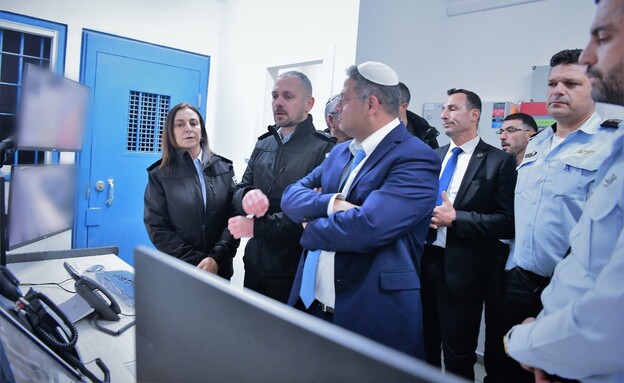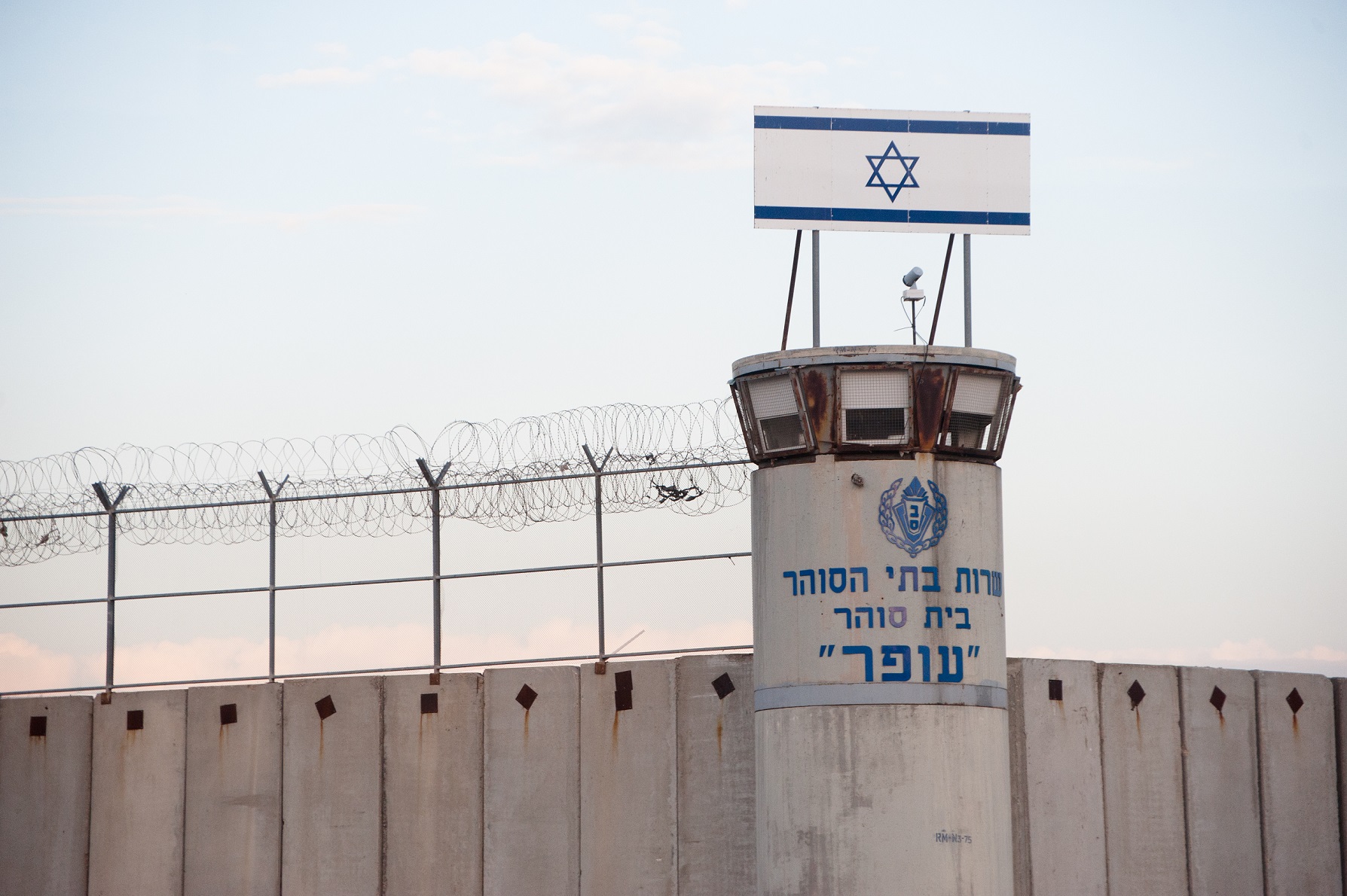Publications
INSS Insight No. 1685, January 25, 2023
While a change in the incarceration policy of security prisoners is required, broad and serious consequences may accompany any change: the issue of prisoners is central in the Palestinian discourse and on the Palestinian agenda, both among the public and in the Palestinian Authority. Therefore, Israel must consider its strategic goal regarding the Palestinian arena, and on this basis build a complete set of measures and policies, with the incarceration policy an integral element. All this must be subject to the involvement of the relevant organizations and the cognitive preparation of the population in Israel to deal with an escalation in the conflict arena. If not, the implementation of Minister Ben-Gvir’s stated intention may well result in friction at a high level, which could deteriorate to the point of a third intifada, without Israel wanting it and without the requisite advance preparation.
The announcement by Minister Itamar Ben-Gvir regarding the "end of summer camp" for Palestinian security prisoners in Israel's prisons, followed by his publicized visit to the Nafha prison in early January 2023, a few days after his appointment as the Minister of National Security, led immediately to a closing of the ranks in the Palestinian arena.
Minister Ben-Gvir's stated intentions to make the prison conditions of the security prisoners harsher – or in the language of his spokesman, "Minister Ben-Gvir came to make sure that the conditions of the security prisoners will not be improved" – raises several fundamental questions:
- Is it right to toughen the incarceration policy of security prisoners?
- What are the possible reactions of the prisoners, the Palestinians in the Gaza Strip and the West Bank, and the Arab citizens of the Israel?
- Is this change possible at the present time? Is the prison service prepared for the changes designed to make the conditions of incarceration more severe, vis-à-vis the effect on the facilities and the extent of the personnel that will be required to deal with possible problems that ensue? Are the police prepared to deal with possible riots in the Arab sector or in the cities with mixed Arab and Jewish populations that will break out in response? Is the IDF prepared to deal with a sharp escalation in the West Bank and Gaza Strip?
- Are there alternatives to the current conditions of incarceration, including the formulation of a gradual process to narrow the gap between the existing situation and the change that Minister Ben-Gvir wishes to apply?

The situation in Israel’s security prisons requires change, but not every move, however justified, is wise at any moment and under all conditions. It is clear that the security prisoners imprisoned in Israel receive administrative autonomy and benefits that go above and beyond what is required under Israeli and international law, and certainly the conditions of their imprisonment are more favorable than those in other Western countries – also considering the number of prisoners and their backgrounds. This is a reality that took shape over the years in response to the need for calm and containment, with the support of generations of political echelons who weighed their considerations and understood the centrality of the prisoners issue for Palestinians everywhere.
There is a Palestinian-wide consensus surrounding the prisoners: it is an issue that unites streams and bridges rifts, and above all may rally the general public in a struggle, even a violent one. The Palestinian Authority has never presented a position different from the public's stance regarding the issue and it is not expected now to deviate from this practice. Furthermore, the PA puts the security prisoners up on a pedestal, paying them and their families large sums of money, amounting up to about 7 percent of its annual budget. Any change in this policy will undermine the PA’s already worn public legitimacy. It is a national issue with an ideological basis, central to its very being.
The working assumption of the political echelon must be an escalation, even severe, on all three fronts (the West Bank, the Gaza Strip, and among Arab citizens of Israel – in Arab towns and in cities with mixed population) should there be a change in policy that worsens the conditions of the security prisoners. Given this premise, there must be advanced preparation by organizations, security forces, resources, and no less important, Israel’s civilian population. The professional level is very important in the preparation process of the political echelon, which must find a way to overcome existing mistrust toward the professional ranks. In this framework, it will especially have to overcome a lack of trust in the police and the prison service and involve these bodies in the process of change. First and foremost, the political echelon will have to ask their professional opinion regarding the intention to toughen the conditions of incarceration and the preparation for its implementation, in accordance with the goals and policies that will be established.
Before changing the policy, it is appropriate to examine the possibility of a different classification of the prisoner population, to distinguish between dangerous prisoners who have blood on their hands, and others whose offenses are less serious. It is also important to distinguish between children and adults and between healthy and sick. It may be appropriate to examine gradual changes for some groups of prisoners, along with the early release of others. Allocation of specific prison facilities will be required to separate between prisoners or isolate dangerous prisoners. This also projects rationale and a message of understanding to the outside world. In addition, the possibility of a pilot project in which one correctional facility will be converted into a prison with stricter conditions, intended for dangerous prisoners or those who violate rules in other prisons, should be examined. In any case, it is important to think and plan the policy change and its implementation within a conceptual framework of a series of alternatives.
And above all, it would be wrong to isolate the prisoners issue from the other components of the Palestinian issue. In other words: a change in the incarceration policy must be part of a broad systemic concept of defined strategic goals in relation to the Palestinian arena. The change must be carried out as part of a complete and comprehensive strategic move. However, it is not certain that the Israeli government has already defined the goal of the change that Minister Ben-Gvir seeks, and therefore the question of the timing of the change to the incarceration policy is also of the utmost importance.
A change in the incarceration policy of the security prisoners is indeed required, but due to the broad and serious consequences that can accompany it, it is necessary to think about the strategic goal regarding the Palestinian arena and build a complete set of measures and policies, with the incarceration policy one integral part. If not, the implementation of Minister Ben-Gvir's stated intention could result in high-level friction, which would deteriorate to the point of a third intifada, without Israel wanting it and without adequate advance preparation. Apart from integration of relevant systems in preliminary thinking and preparations, the cognitive preparation of the population in Israel is required, which will inevitably be required to deal with an escalation in the conflict arena. After all, it is easier for the public to understand a move and support it when the desired strategic purpose is clear, rather than when it is a move whose purpose is an irresponsible use of the policy based on an assumption – not necessarily proven – that support for it exists in advance, and without its consequences being discussed in depth.



